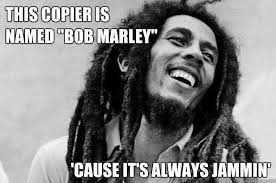I read a lot
of information, ideas, and opinions about writing. I’m always trying to improve
my craft and my goal, as you may know, is to create a novel that actually
gets published. If you’ve been following this blog you know that I’ve had a
little luck but no real success in obtaining an agent to represent my book. So
when I ran across something that suggested the writer do a word find for the (apparently)
overused word ‘was’, I thought I’d
give it a try. See what's what.
Oh boy.
In my 50,000
plus word-count novel, I used the word was
873 times. Yikes. Was was highlighted
on the very first page EIGHT times! Er… I mean, I had used the word was eight times on the first page alone!
(See how easy it is to overuse that little word?)
So, my novel,
that I had revised a million times, is under yet another revision. I’ll give
you an example of what I’m doing to this beast (the book) now.
This is how I
introduced and described a character named Ed.
The man’s name was Ed, but
he wasn’t about to introduce himself to this looser. Ed was not only broad
shouldered, but tall too. He had a long, wide nose that looked like it may have
been broken a time or two, and dark bags under his brown eyes. A black T-shirt,
tight across his chest, was tucked into black Levi’s. His left arm sleeve was a
testament to the far-east. Two large koi fish, one blue and one orange swam upstream
through rough black waters. Around his wrist, a ring of lotus flowers fluttered
from the black waves. Otto could not see his right arm in this light, but he
had the impression that he probably had a full sleeve there too.
A large leather wallet was
jammed in his back pocket. It was connected to his belt loop by a chain that
swayed back and forth as he walked over to a Crock-Pot sitting on an old glass-topped
end table. Full Contact Fighter was emblazoned across the back of his T-shirt. Ed
scratched his head through a black stocking cap pulled down to his bushy black eyebrows
and smoothed his Fu Manchu with his thumb. Both stall tactics that allowed him
time to think. Ed scooped up a mugful of steaming, burnt smelling stew.
I used the word was
eight times in those two paragraphs. Now here’s a revision, cutting the use of
the word was in half, to four times.
The man’s name was Ed, but he
wasn’t about to introduce himself to this looser. Ed was not only broad
shouldered, but tall too. He had a long, wide nose that looked like it may have
been broken a time or two, and dark bags under his brown eyes. A black T-shirt,
tight across his chest, was tucked neatly into equally tight black Levi’s. His
left arm sported two large koi fish, one blue and one orange swam upstream
through steely waters. Around his wrist, a ring of lotus flowers fluttered through
black waves- a full sleeve testament to the far-east, Otto concluded. Although
he couldn’t see his right arm, Otto had the impression that he probably had a
full sleeve there too.
A chain connected to a large leather
wallet and his belt loop swayed back and forth as Ed walked over to a Crock-Pot
sitting on an old glass-topped end table. Full Contact Fighter printed the back
of his T-shirt in white block letters confirmed to Otto that this man could probably
handle himself pretty well.
Ed scratched his head through a
black stocking cap pulled down to his bushy black eyebrows and smoothed his Fu
Manchu with his thumb. Both stall tactics that allowed him time to think, then
he scooped up a mugful of steaming, burnt smelling stew.
By using the word was, I created
a passive, rather than active story.
Active is more entertaining. Active writing places the reader in the
story much better than passive writing does. And then I realized that I had been confusing
passive with past tense.
Example:
A passive sentence goes
like this:
He was walking to the gas
station to buy a pack of smokes.
An active sentence goes
like this:
He walked to the gas
station for smokes.
 Past-tense
words are ones that end in –ed. Like walked, jumped, smoked. I thought using a word like walked was
passive when really it was just past tense.
By writing ‘he was walking’ I was trying to avoid passive writing when really I was only
avoiding past tense words.
Past-tense
words are ones that end in –ed. Like walked, jumped, smoked. I thought using a word like walked was
passive when really it was just past tense.
By writing ‘he was walking’ I was trying to avoid passive writing when really I was only
avoiding past tense words.
In short:
Passive writing can use
active, present-tense verbs.
Active writing uses
past-tense verbs and that’s just the way it is. Past-tense does not mean
passive.
GAA! I hope this little tutorial doesn’t make your
head spin! It’s Live and Learn Time again
(still) for me.
Gotta get back to my
revisions- I’m only 30 pages in on my 165 page book.
Until next
time,
Be Good to
Yourself,
~Nadine
 Zine, pronounced zeen, (like the end part of magazine, explained my co-worker) is an old
form of communication. Dating back to the 1930’s, it’s had highs and lows in
popularity.
Zine, pronounced zeen, (like the end part of magazine, explained my co-worker) is an old
form of communication. Dating back to the 1930’s, it’s had highs and lows in
popularity.  Way back in the early history of the United States, Thomas
Paine printed a pamphlet in 1776 called Common
Sense. It was 48 self-published pages that pushed for the colonists to
fight for independence against Britain. It was of course, blasphemy to the Monarchy,
therefore, an underground communication that spread like wild fire and caused
men to take action. Perhaps it could be
considered the first Zine?
Way back in the early history of the United States, Thomas
Paine printed a pamphlet in 1776 called Common
Sense. It was 48 self-published pages that pushed for the colonists to
fight for independence against Britain. It was of course, blasphemy to the Monarchy,
therefore, an underground communication that spread like wild fire and caused
men to take action. Perhaps it could be
considered the first Zine? It’s a super rough draft of the first chapter of my novel,
The Ink of Time. I’m not sure if the topic is ‘quirky’ enough to be a true zine,
but I don’t care. It’s a new fun and creative way for me to do my writing thang.
It’s a super rough draft of the first chapter of my novel,
The Ink of Time. I’m not sure if the topic is ‘quirky’ enough to be a true zine,
but I don’t care. It’s a new fun and creative way for me to do my writing thang. 













